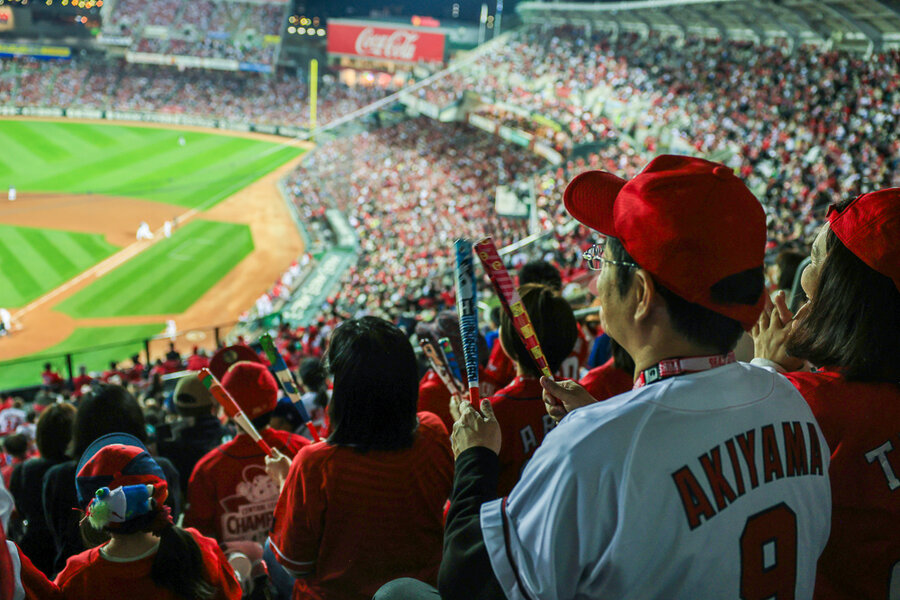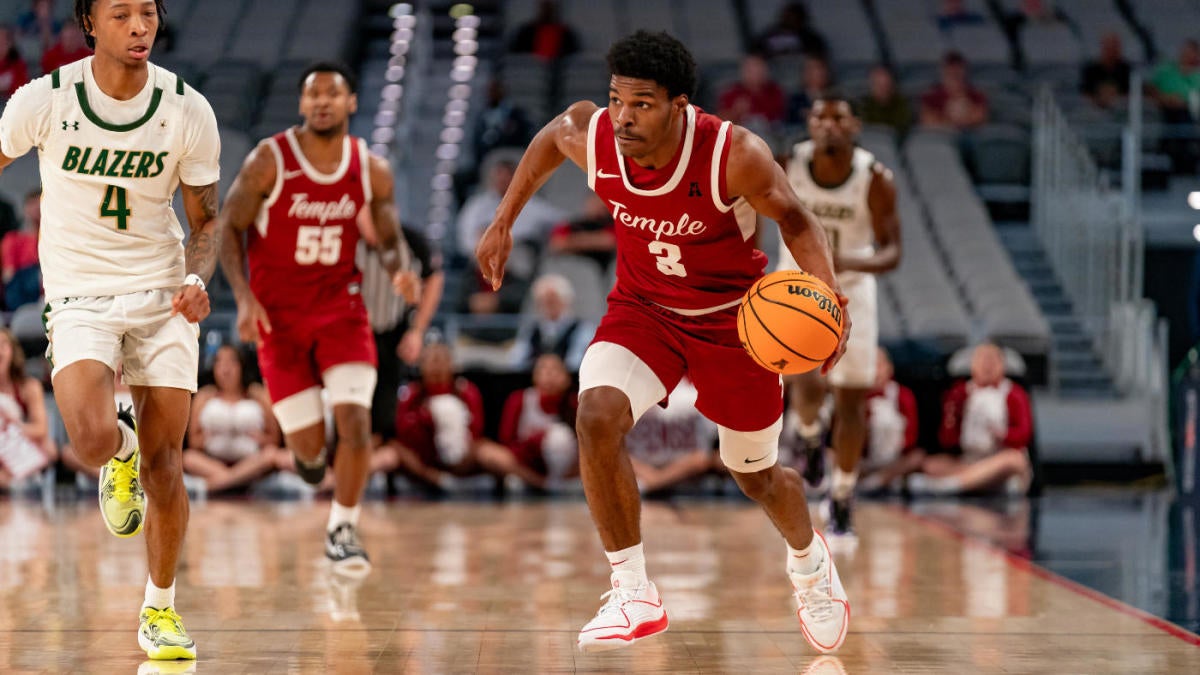Travel
Think Sports Are Boring? Try a Japanese Baseball Game

It’s 8 a.m. on March 21, 2023, and I’m in a Tokyo-area izakaya along with 30 stressed out baseball fans. We wordlessly clutch our breakfast beers and try not to hyperventilate as Shohei Ohtani, playing for Samurai Japan, steps up the mound. As he strikes out the batter and wins the final game of the World Baseball Classic, the room erupts with a euphoria that borders on out-of-body bliss. After a moment of hesitation—after all, I don’t know any of these people—I run across the bar to high-five my fellow fans. Overwhelmed by the close contact with strangers, I spent the rest of the day cooling down at a baseball-themed Buddist shrine located in nearby Higashimatsuyama.
It wasn’t that I was rooting for Japan over America that felt so weird—it was that I was enjoying baseball at all. The fact that I was doing it with strangers added to the shock.
Sometimes it’s hard to pinpoint when you definitively decide something is not for you. Other times, less so, like when you’re 12 and you take a softball to the head in the middle of a family catch. I reacted in a totally rational preteen fashion, by swearing off any and all things sports-related well into my adulthood. That is, until 2018, when I took my first trip to Japan. Judgment clouded by convenience store carbs and a Sanrio-induced mania, I agreed to attend my first-ever game at Koshien Stadium, located about halfway between Osaka and Kobe. It only took nine innings and a round of matcha ice cream to undo a lifetime of anti-sports rhetoric and to adopt the Hanshin Tigers as my team of choice.
After all, Nippon Professional Baseball was oddly tailored to my sensibilities. Bright yellow mouse mascots To-Lucky and his girlfriend, Lucky, danced across the field in regular intervals. Posters at concession stands featured players endorsing their favorite bento boxes. And Uriko—tiny women in pink uniforms with oversized Asahi tanks strapped to their backs—roamed the bleachers. And everyone was so friendly. In fact, Japanese baseball seemed like the definition of controlled chaos; at the end of the game, after we were all done screaming and high-fiving, we grabbed our trash and filed out in an orderly fashion.
Even though I’m geographically obligated to root for Ohtani at home, I can’t be bothered to travel across town for a Major League Baseball game. After attending a game in Japan, it’s hard not to find the MLB a bit too drunk and disorderly. But I always make time for a game when I’m in Japan. And my passion has only grown over the course of eight subsequent visits.
Simply put: Japan does baseball better than America does. Putting on Tokyo Giants socks, purchased at a nearby FamilyMart and slurping kitsune udon in the bleachers of the open-air Meiji Jingu Stadium brings me more than a jolt of mere novelty. Instead I’ve learned to embrace the concept of ikigai. Loosely translated, it means dedicating yourself to what gives life meaning, and it’s the same philosophy that explains Japan’s remarkably high number of incredible artisans and chefs. But the Japanese also apply that philosophy toward being a fan, which is precisely what makes it so pleasurable.In Japan, jeering at other teams is looked down on—why would anyone want to yuck someone else’s ikigai? Effort is put into showing up from your team, not tearing the other team down, which explains both the impressive number of T-shirts, jerseys, and accessories available for purchase at Japanese baseball games, as well as the sheer number of coordinated chants. (I know from experience how fun these are, thanks to Duolingo lessons and the fact that the person running the jumbotron at the ZOZO Marine Stadium projected the Hiragana characters large enough that I could read them phonetically.) Attending a baseball game there is essentially a community-building exercise—one that makes life worth living, because it involves standing side-by-side with other people who are enjoying the exact same thing.
Every spring, when high schools from around the country play a single-elimination tournament, this spirit of community-building is in full force. It’s the largest amateur sports event in the country, and it’s not unusual for the cheers from Koshien to reverberate throughout the city. When I caught a game there in 2022, I cheered my heart out despite not having a horse in the race, or rather a child on the field.
As an introvert, it shocks me to realize that I love all of this.
In their first season after COVID, the Hiroshima Toyo Carp resumed their seventh-inning stretch tradition of fans holding up cylindrical ”rocket” balloons and then releasing them en masse. I was initially content with merely photographing the action—that is until I was handed one by a nearby fan who didn’t want me to feel left out. I was touched by the invitation, which I made sure to demonstrate through effusive bowing and thanks.
I paid this sentiment forward when Japan beat Korea in the Asia Professional Baseball Championship in late November 2023. Thankfully, the Japanese women behind me graciously returned my high-fives when I turned around gasping with excitement. (Duolingo lessons forgotten in my excitement, I settled for shrieking, “Japan is number one!”) I was out of pocket and character—and deeply enjoying it. As it turns out, weird things happen when you embrace the excitement of the moment and of ikigai.
In fact, I’ll never forget watching the final game of the World Baseball Classic at a British-themed sports bar in Osaka in November of 2023. Flying solo, I squeezed into a small table with a few strangers. After confirming our team alliances in our limited English and Japanese, I treated them to a round of snacks, and they bought a round of drinks. When the Hanshin Tigers won 7-1, the entire room completely lost it. When those strangers—now friends—reached out for a celebratory high-five, I didn’t hesitate at all.








